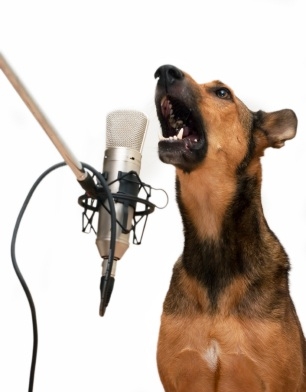Pete and Repeat Were on a Boat...

Dale Carnegie said "Remember that a man's name is to him the sweetest and most important sound in any language." But I think he missed the real winner in the "most beloved sound" contest: the sound of our own voices. We love to talk, and if we don't get some sort of immediate feedback, we tend to repeat ourselves.
Meanwhile dogs don't send or receive very much information vocally. Sure, there are plenty of dogs - entire breeds actually - that seem to love the sound of their own "voices" too, but this is not the domestic dog's primary way of transmitting or, and this is important, receiving information.
I'll repeat that.
Vocal communication is not the domestic dog's primary way of transmitting or, and this is important, receiving information.
When we train a dog to do something on command, such as sit when we say "sit" or lie down when say "down", we are not teaching them what those words mean. We have assigned a sound (a cue) to an action. We could just as easily get them to sit when we ring a bell or lie down when we snap our fingers.
Sometimes your dog doesn't respond right away. She may be distracted, in which case you need to get her attention back on you before you ask her to do something. Or she may not understand what you mean - "sit" in the kitchen isn't the same as "sit" in the back yard until you've trained the behavior in a variety of places - or maybe you've unintentionally changed something else that is causing confusion.
When we repeat commands to a dog, one of two things happens. Our dogs either learn to not respond the first time: "sit" becomes "sit. Sit. SIT." Or worse, they learn to ignore the word(s) completely. Think of what happens when radio stations discover (or decide) that a song is popular: after the 1,000,000,000,000th time that song comes on you don't hear it (or are tempted to jump out of the moving car, but I digress.)
This effect is what trainers are trying to avoid when they tell you to not repeat your commands. It's really tempting to repeat a cue when a dog doesn't respond right away and even the pros do it at times, but there's an important reason to try to say things once and wait it out first.




